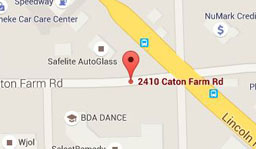Should You Have Your Wisdom Teeth Removed?

In times past, it used to be that when your wisdom teeth begin to erupt, they had to be removed. Wisdom teeth are the last permanent teeth to erupt, usually in your late teens or early 20’s, and can impact already established teeth. Most dentists prefer to do the procedure as soon as possible because it is easier to remove them while the jaw bones are still growing.
However, removing your wisdom teeth is not always necessary and you could still keep them well into your old age. If you are just getting your wisdom teeth, or have had them a long time and are having problems, then you may wonder if extraction is right for you. Here are some common reasons why extraction is recommended and some alternatives if you feel that it is not right for you at this time.
Potential Wisdom Tooth-Related Problems
Because the average human jaw size has decreased over the course of human history, many people don’t have enough room for wisdom teeth in their mouth. This lack of space can cause some of the following problems.
Impaction
Impaction is when the tooth comes in sideways or in the wrong place, often beside or even under an existing tooth, or fails to completely erupt. This misalignment can cause intense pain and possible damage to your other teeth and mouth.
Crowding
Crowding happens for reasons similar to impaction, but instead of the tooth erupting in the wrong place or sideways, it pushes the existing teeth closer together. The end result is that the other teeth are pushed out of place and become crooked.
Cysts and Tumors
If your wisdom teeth erupt badly, or don’t erupt at all, then you could be at risk for developing cysts or tumors under the gumline and inside the jawbone.
Infections
Infections often happen as the wisdom tooth partially erupts through the gumline and bacteria gathers under the area between the top of the tooth and the gum that partially covers it.
Adjacent Tooth Damage
As they erupt, the wisdom teeth may crash into or rub the teeth next to them and cause cracks or cavities in their enamel. Wisdom teeth can also cause cavity damage under the gumline at the roots which could lead to an abscess.
Gum Issues
Oral hygiene is often very difficult in the back of the mouth and it is hard to keep the gums in this area clean and healthy. Special attention and brushes may be able to help reduce gum issues.
Alternatives to Removing Wisdom Teeth
If you are not experiencing pain or problems with your wisdom teeth, then there is a chance that you can still keep them. Here are some things you and your dentist can discuss when your wisdom teeth begin to erupt.
Wait and See
If you are otherwise diligent about your dental health and get regular dental exams, then you may be able to wait and see how the teeth will erupt before deciding to have them pulled. The downside is that the longer you wait, the more difficult it could be to remove those teeth.
Remove Only When Necessary
Even if the wisdom teeth aren’t coming in perfectly, you may still choose not to have them pulled if you are not experiencing pain or infection. Many people have little to no problems with their wisdom teeth and keep them for the rest of their life.
The good news is that not all wisdom teeth cause problems and you do not, necessarily, need to have them removed. However, whether you keep your wisdom teeth or not, you must make sure your dental hygiene is top notch and see your dentist regularly to catch problems early. If you need to see a dentist and have your wisdom teeth assessed, visit Crest Hill Family Dental for a checkup and consultation.

